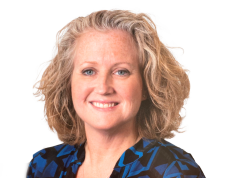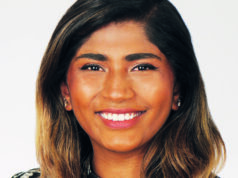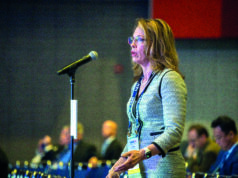
“How many programs conducted in-person interviews this year?” “Which programs conducted in-person interviews?” “Oh wow, I didn’t realize that many programs were conducting in-person interviews.”
All of these are questions gleaned from last year’s Match process. To be sure, the Association of Program Directors in Vascular Surgery (APDVS) has demonstrated a tireless commitment to finding best interview practices, developing new residency programs, and increasing training resources and recruitment. Looking at the 2024 Electronic Residency Application Service (ERAS) preliminary data, the APDVS efforts have clearly been successful. Diagnostic radiology and integrated vascular surgery were the two specialties experiencing the largest growth, characterized by increases in applicant numbers, average applications submitted per applicant, and average applications received per program. Despite this demonstrated growth and the efforts of the APDVS, these sentiments from the interviewers during the 2024 interview cycle identified a large discrepancy between the success the APDVS has had in these measures and the current interview process for a residency position in this field.
The Match process was a frequently discussed topic at the Houston Methodist intern boot camp. Out of curiosity, I began intentionally interviewing my fellow incoming interns about their experiences. I fully expected the first interview to fail, assuming people either wouldn’t participate or the conversations would be vague and superficial. Wrong. I was met with a shocking level of engagement that catapulted more interviews, shared experiences and inquisitive questions. I was excited to share what these conversations uncovered and knew if anyone would be interested in my findings, it would be my program director, Dr. Malachi Sheahan. In his 2021 article, “It is time to end the interview,” Dr. Sheahan thoroughly describes the faults of our current surgical trainee and faculty selection processes, impressions vs. assessment tools, the interviewer’s bias, and the overly confident assumption that we make as humans that we conduct interviews well. The guidelines made by the APDVS during the 2024 interview cycle for best interview practices were followed by only 64 programs. Eleven programs conducted in-person interviews, and one program conducted a combination of in-person and virtual interviews. Thus, my first question was born: how are integrated vascular surgery residency applicants affected by their own bias in the current in-person/virtual/hybrid interview era?
In their 2023–2024 guidance statement, the APDVS references the data from the VISIT (Vascular in-person for students in the Match) trial to showcase the impact that in-person visits have on an applicant’s rank list. The VISIT trial reported that the most impactful factors to applicants when visiting a program were esprit de corps of the program, the people and physical setting. Within minutes of conducting the first conversation it was evident that a program’s reputation, as it pertains to the experiences of fellow applicants during away rotations and the opinions of an applicant’s mentor, far outweighed anything gained from an interview, regardless of format or an in-person visit. It is well known that many applicants also vet their impression of a program with a mentor or trusted colleague. This is especially influential in vascular surgery, which is a smaller, well-connected field. Placing highest value on a mentor’s, resident’s or another applicant’s opinion/experience was reported by nearly all the matched applicants with whom I spoke. This was reported regardless of presence/absence of a home program, and if their most positive and impactful experience was in-person or virtual. This was one of, if not the most, influential factors for both females and males when making their rank lists, yet the characteristics of their rank lists were drastically different. Roughly 30 interns were at the Houston Methodist boot camp, representing roughly a third of current vascular interns in the country. There was not a single female intern who ranked a program number one at which she hadn’t completed an away rotation, interviewed at in person, and/or visited in person. There were several males who ranked a program number one at which they had only interviewed virtually. Although it is uncertain if these trends are significant, the VISIT trial cohort consisted of a similar number of residents that responded and completed the survey—similar in size to the number who participated in my discussion. The VISIT trial was used by the APDVS to make recommendations for best interview practices this past interview cycle, but should other factors—such as the effects of gender—be included? Are females affected differently than their male colleagues by the increasing number of programs conducting in-person interviews? If so, can the APDVS utilize this information to reduce bias and create a more consistent interview experience?
This led me to reflect on my own experience with away rotations and how this influenced my rank list. I decided to then ask how recently matched interns selected away rotations to apply to and subsequently attend. Again we saw the influence of word of mouth. Every single person I asked said they chose to apply to and accept at least one away rotation solely based on program reputation and/or their mentor’s opinion. Additionally, the entire cohort of interviewees said they would significantly change where they applied and attended away rotations after having completed interview season. All interns I spoke with wished there was more information about programs provided by the programs themselves, either on their websites or by the SVS/APDVS. The SVS currently provides a full listing of Accreditation Council for Graduate Medical Education (ACGME)- accredited vascular surgery training programs. Program descriptions are listed if available but vary drastically in the information provided. In my experience, this is not specific to integrated vascular surgery residency applicants. Feeling uninformed when applying to and selecting away rotations is a sentiment commonly expressed by many fourth-year medical students. However, if integrated vascular surgery—one of the fastest growing residency programs—is a specialty so heavily impacted by networking and away rotations, should opportunities such as these be a topic addressed by the APDVS? Other specialties have begun to implement changes to address away rotation and interview practices. Integrated plastic surgery has created a specific task force dedicated to away rotations. This task force has been responsible for developing numerous resources for prospective applicants, including well-organized, updated and consolidated information on away rotations, application cycle webinars, and application process advice.
Integrated vascular surgery residency is one of—if not the only—residency specialty to not utilize signaling. Surprisingly, this was a topic of large debate amongst the recently matched integrated vascular surgery interns. Some advocated for the implementation of signaling within our specialty, others argued against this, and still others were neither for nor against but instead focused on risk/benefit analysis. Those who advocated for the implementation of signaling are simply of the mindset that if other specialties are utilizing it, then vascular should as well. Some argue that away rotations are the equivalent of signals in vascular surgery and the use of signals would compensate for the issues regarding away rotations. Those who are adamantly against the use of signals appreciate that uniqueness and lack of conformity of our specialty, and vote against signaling as they do not wish to go with the status quo. Others value that many vascular programs individually review applications and the use of signaling may negate this.
I think the process of interviewing for residency will forever be a complex task that is met with constructive—and sometimes not so constructive—criticism. I do not think any one specialty has or will ever figure out the “perfect” system. However, with the completion of the 2024–25 interview season, my curiosity regarding the interview practices within vascular surgery persists.
Are our current practices affecting genders differently? Are we lagging behind other specialties that are experiencing less growth? Most importantly, were the opinions expressed by interns in Houston specific to that class of interns, or do these trends persist amongst newly matched students?
Sarah Lauve is a second-year integrated vascular surgery resident at Louisiana State University (LSU) in New Orleans.












